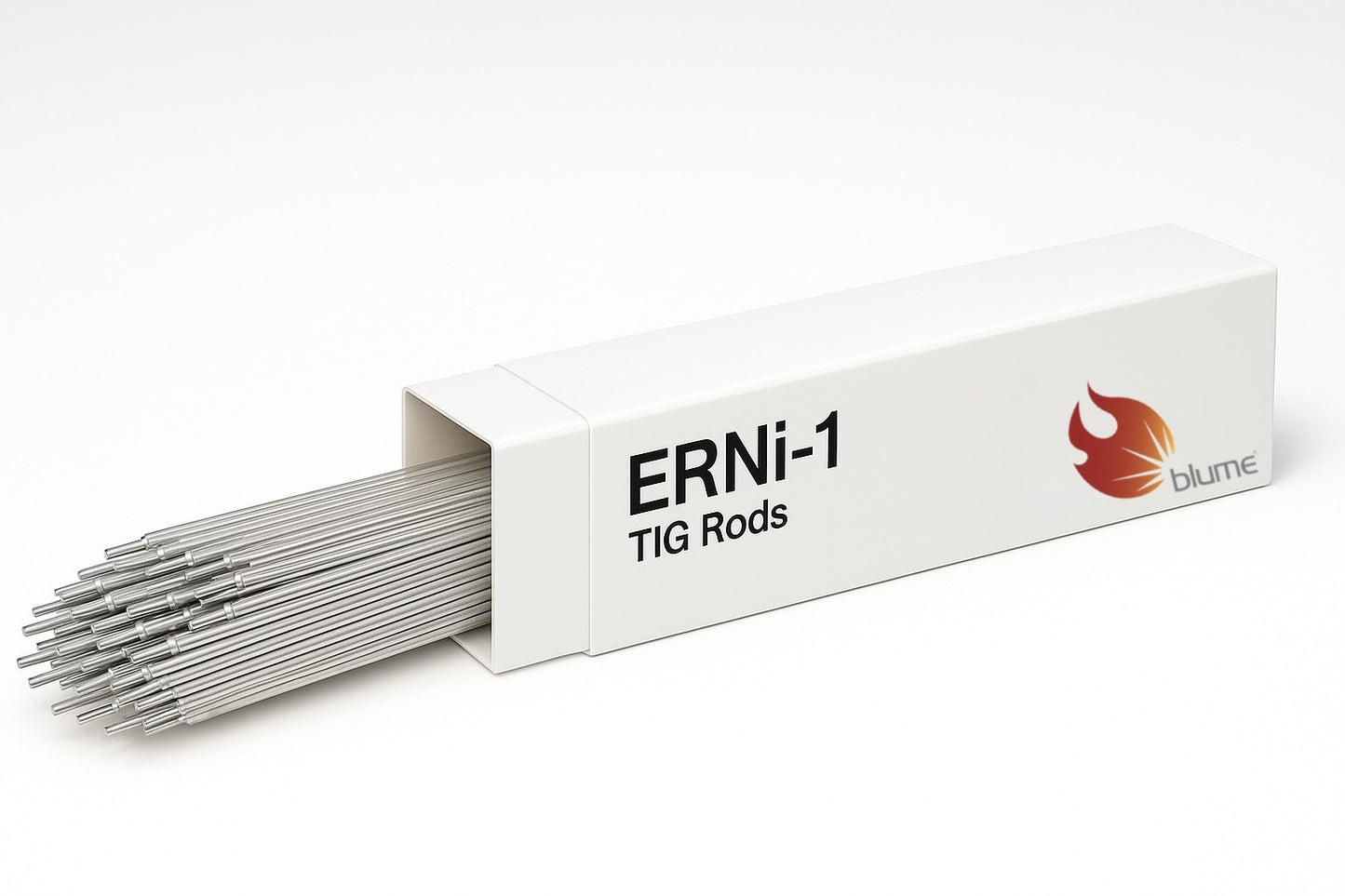Nickel Alloy TIG Rods
BLUME® ERNi-1 (TIG)
BLUME® ERNi-1 (TIG)
Specification: ASME SFA/AWS A5.14 ERNi-1
Premium Nickel TIG Rods for High-Performance Welding
Designed for superior corrosion resistance and exceptional weld integrity, BLUME® ERNi-1 TIG Rods are the go-to choice for welding nickel alloys in demanding industrial environments. Delivering smooth arcs, clean deposits, and reliable strength, these rods provide professional-grade performance for critical applications.
Ideal for chemical processing, power generation, marine, and aerospace industries, BLUME® ERNi-1 TIG Rods ensure long-lasting, high-quality welds in corrosive and high-temperature conditions.
BLUME® ERNi-1 vs Standard ERNi-1

Key Features
Key Features
✅ Premium Nickel Alloy – Maximum corrosion resistance and durability
✅ Stable Arc – Ensures smooth, precise TIG welds
✅ High Toughness & Ductility – Reduces cracking and deformation
✅ Consistent Weld Quality – Minimal spatter, clean bead appearance
✅ AWS A5.11 / ASME SFA 5.11 ERNi-1 Compliant
✅ Strict Quality Control – Reliable performance batch-to-batch
Recommended Application
Recommended Application
✔ Chemical and petrochemical processing equipment
✔ Offshore oil & gas structures
✔ Power generation components (boilers, turbines)
✔ Marine and aerospace fabrication
✔ High-corrosion environments
✔ Piping and tanks requiring superior weld integrity
Product Data Sheet
Product Data Sheet
FAQ
FAQ
Q: Why choose BLUME® ERNi-1 TIG Rods?
A: They offer enhanced corrosion resistance, excellent weld integrity, and smooth arc performance for demanding nickel alloy applications.
Q: What shielding gas is recommended?
A: 100% Argon provides optimal TIG welding results.
Q: Can these rods be used in marine or chemical environments?
A: Yes. Their nickel alloy composition ensures long-term corrosion protection.
Q: Are they suitable for automated TIG welding?
A: Absolutely. Smooth arc and consistent feedability make them ideal for both manual and automated processes.
Q: Do they perform well under high temperatures?
A: Yes. They maintain toughness, ductility, and corrosion resistance under extreme heat.
Share


